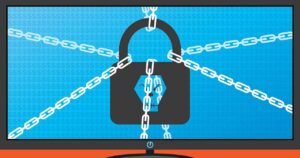
Ransomware attacks are a looming threat in today’s digital landscape, wreaking havoc on individuals and businesses alike. If you’ve found yourself in the unfortunate situation of having your files encrypted with the “sspq” extension, don’t panic. In this guide, we’ll navigate the murky waters of ransomware recovery, offering practical steps and valuable insights to help you reclaim your data.
Introduction
In a world dominated by technology, ransomware has emerged as a formidable adversary, holding files hostage and demanding a ransom for their release. The ominous “sspq” extension on your files signifies that you’ve fallen victim to one such attack. But fear not; solutions and strategies exist to mitigate the damage and recover your precious data.
Understanding Ransomware and “sspq” Extension
How Ransomware Works
Ransomware is malicious software designed to encrypt files on a victim’s computer, rendering them inaccessible. The Ransomware attack data recovery then demand payment, usually in cryptocurrency, for the decryption key.
The Mystery Behind “sspq”
The “sspq” extension is a fingerprint of the specific ransomware strain affecting your files. Understanding its origins is crucial for effective recovery.
Immediate Steps After Infection
Disconnecting from the Internet
The first step is to disconnect from the internet to prevent further spread and potential damage. This action is pivotal in containing the ransomware.
Say No to Ransom Payments
While the temptation to pay the ransom might be strong, it’s crucial to resist. Paying does not guarantee file recovery, and it fuels the criminal enterprise.
Identifying the Ransomware Strain
Knowing Your Enemy
Identifying the ransomware strain is vital for employing the right recovery techniques. Online tools and forums can assist in this detective work.
Why It Matters
Different ransomware strains have different decryption methods. Knowing the strain can significantly increase the chances of successful recovery.
Backup Strategies
The Power of Backups
Regularly backing up your files is your best defense against ransomware attacks. Whether using cloud storage or external drives, a robust backup system can save you from data loss.
Best Practices
Implementing backup best practices ensures the security and accessibility of your data. This includes regular updates, encryption, and testing the restoration process.
Security Software and Updates
Antivirus and Anti-malware Shield
A strong antivirus and anti-malware solution forms a crucial line of defense against ransomware. Regularly updating these tools enhances their effectiveness. Ransomware data recovery services in India is the best option for your support.

Software Updates
Outdated software can be vulnerable to attacks. Keeping your operating system and applications up-to-date patches potential security loopholes.
Seeking Professional Help
When to Consult Experts
If the situation seems overwhelming, seeking professional help from cybersecurity experts is a prudent move. They possess the expertise to analyze and mitigate the impact of ransomware.
Choosing the Right Experts
Selecting a reputable cybersecurity firm is crucial. Look for experience, reviews, and success stories in handling ransomware cases.
Recovery Tools and Techniques
Decrypting Tools
Various decryption tools are available online, created by cybersecurity experts. These tools can potentially unlock your files without succumbing to the ransom demand.
DIY File Recovery
If you prefer a hands-on approach, attempting file recovery using available tools and techniques is an option. We provide step-by-step guidance for those willing to take the plunge.
Reporting the Incident
Why Report?
Reporting the ransomware incident to law enforcement agencies contributes to the global fight against cybercrime. It helps authorities track and apprehend the culprits.
How to Report
Provide detailed information about the attack to the relevant authorities. This includes the ransom note, any communication from the attackers, and details about the “sspq” extension.
Preventive Measures for Future
Ransomware-Proof Your System
Learn from the experience and implement robust preventive measures to safeguard your system from future ransomware threats.
Staying Vigilant
Vigilance is key. Stay informed about the latest cybersecurity threats and adopt a proactive approach to keep your files secure.
Community Support and Forums
Share Experiences
Engaging in online forums and communities allows you to share your experience, learn from others, and gather insights into effective recovery methods.
Strength in Numbers
A collective effort against ransomware strengthens the cybersecurity community and raises awareness about evolving threats.
Stay Informed About Cybersecurity Trends
The Ever-Changing Landscape
Cybersecurity threats are dynamic. Staying informed about the latest trends, vulnerabilities, and best practices is crucial for maintaining a secure digital environment.
Resources for Stay Updated
Explore reputable websites, blogs, and forums that provide real-time updates on cybersecurity trends. Knowledge is your best defense.
Legal Implications and Consequences
Legal Ramifications
Ransomware attacks are not just a technical problem; they also have legal implications. Understanding the legal consequences is essential for victims.
Reporting for Legal Action
Cooperating with law enforcement not only aids in recovery but also ensures that perpetrators face the legal consequences of their actions.
Conclusion
In the face of a ransomware attack, resilience and informed action are your best allies. By following the outlined steps, you can enhance your chances of recovering your files and contribute to the collective fight against cybercrime.
FAQs
- Can paying the ransom guarantee file recovery?
- Paying does not guarantee recovery, and it funds criminal activities. Explore alternative recovery methods.
- How often should I update my antivirus software?
- Regular updates are crucial. Set automatic updates and conduct manual checks periodically.
- Are free decryption tools effective in recovering files?
- Some are effective, but success varies. Research thoroughly and consider professional help.
- Can ransomware spread through email attachments?
- Yes, be cautious with email attachments. Ransomware often enters systems through malicious attachments.
- What legal actions can be taken against ransomware attackers?
- Reporting the incident to law enforcement initiates legal actions against attackers. Cooperation is key.


